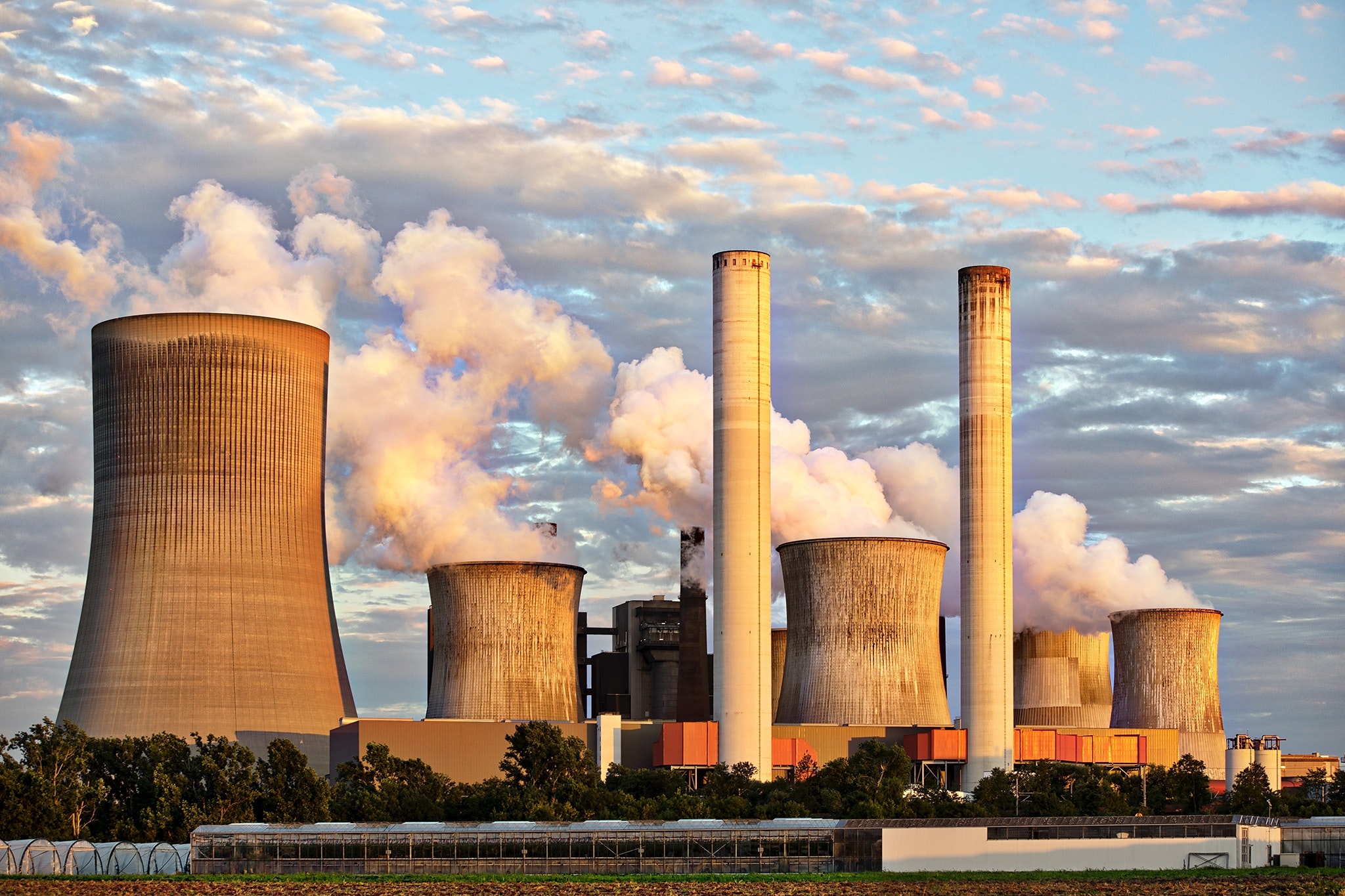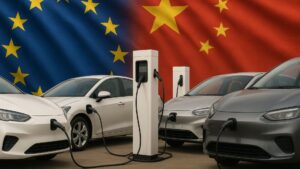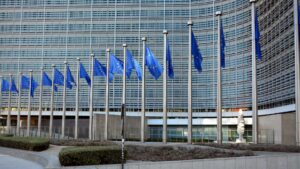Key Points
- The European Commission published on February 2, 2022 the final version of the delegated act of the taxonomy dedicated to gas and nuclear confirming the inclusion of these technologies. This goes against the scientific opinion of the “Platform on Sustainable Finance”, the expert group appointed by the Commission itself for an independent assessment. The Platform has spoken out against the proposal and this position adds to the already numerous positions from the world of finance[1] that affirm the importance of excluding gas and nuclear from green investments.
- The Italian government’s response comes after an opaque decision-making process and coincides with the position of companies established and active in the gas market, which lack an alternative vision for decarbonization in Italy, other than to maximize the value of gas plants.
- The support for the inclusion of gas and the attempt to weaken its entry criteria by Italy shows that the interests of energy companies have priority over the demands of finance, companies unrelated to the gas chain, trade unions and civil society. Gas in the taxonomy strongly exposes investors to decarbonization risks while the taxonomy should serve to unambiguously identify products that are excluded from climate risk.
- The Italian response is based on two faulty assumptions unrelated to facts, independent impact assessments and comparisons with safe, clean and more competitive gas alternatives. These assumptions are: one that Italy needs to develop additional gas-fired generation capacity and needs the taxonomy to do so; and two that existing capacity, energy security and economic sustainability are put at risk if gas technology is not classified as green. These assumptions are not only factually incorrect but risk increasing dependence on gas when gas is at the root of insecurity and unsustainable prices.
- Italy needs a truly green taxonomy. The energy transition in Italy is likely to slow down due to overdevelopment and over-consumption of gas. For Italy, the priority should be to recover private financial resources and make the best use of the Recovery Plan to take the decisive step towards a decarbonized energy system: one that focuses on the development of new renewable capacity, enabling technologies (such as storage and batteries, smart demand management systems), the strengthening of electricity grids and smart grids, the transformation of Italian industry and the conversion of SMEs, energy efficiency and zero-emission mobility. Italy would benefit greatly from a taxonomy that directs international capital into the strategic sectors where the country really needs it. Including gas and nuclear means directing capital towards projects that cannot be realized in our country, such as nuclear, or for which there is no longer a need, such as gas.
- Italy should review its position by voting against the delegated act in the Council. Or, in case of ineffectiveness of this strategy, the parties should instruct their MEPs to vote against the delegated act in the European Parliament.
A green taxonomy to manage climate risk
The 2015 Paris Agreement called for finance to be consistent with decarbonization goals. Thus, the need has emerged to introduce a credible, science-based criterion for indicating which technologies are truly green, with the goal of providing certainty to investors. For investors, this means being shielded from the high risks associated with investments that are not compatible with the decarbonization trajectory needed to meet the Paris commitments and in particular the 1.5 degree target. Today’s climate policies are not sufficient to achieve this goal, and an increase in the ambition of these policies will be needed in the near future. This could happen relatively quickly, with likely significant negative financial impacts for those who have invested in technologies that are not compatible with the 1.5 degree target. Investors know this and are asking to avoid the risk of future financial turmoil that would result from including gas and nuclear in the taxonomy.
The danger of including gas and nuclear is that it exposes investors to decarbonization risks while they think they have signed up for green products. The taxonomy should serve to clearly and unambiguously identify products that are excluded from climate risk.
In the context of the objectives of the European Geen Deal and the indications of the IEA on the need to drastically reduce the use of fossil fuels in line with the target of 1.5 degrees, it is inevitable that gas-fired generation will be subject in the coming years to an increasing carbon price and highly exposed to regulatory risk. Already in Italy, new gas-fired power generation is less competitive than a portfolio of renewables and enabling infrastructure. Contrary to the dominant narrative in Italy, but unrelated to the facts, our country does not need new gas either to get out of coal or to meet decarbonization goals in a socially sustainable manner. On the contrary, the inclusion of gas represents a further disincentive to accelerate, when in fact we know that we are far behind in closing the emissions gap to the Paris targets. At both the G20 and COP26, Italy emphasized that this decade is “critical” to limiting climate change to 1.5 degrees, but a regulator that includes gas in the taxonomy today will be a weaker regulator tomorrow in planning the phase out of fossil fuels in energy systems and thus in achieving decarbonization goals.
The approach of the Italian Government
Unlike what has been done by various member states, including Germany, Sweden and Austria, which have made public their response to the consultation, the Italian response has not been published but has emerged in recent days only thanks to a leak in the trade press. It is not clear what the process behind the position was, but neither experts nor civil society nor financial associations were consulted by the ministries responsible for expressing the opinion (first and foremost the MEF with the support of MITE). The Italian position that emerges coincides with the direct position of the companies established and active in the gas market. The introductory paragraphs state that ‘although this (the taxonomy) is not an instrument of energy policy, it represents an essential tool for increasing transparency for investors, as it allows them to make informed choices about sustainable investments’. The following text strongly contradicts this valid principle and details Italy’s preferred energy policy.
The Italian response to the consultation calls not only for the inclusion of gas in the taxonomy but even for milder criteria for gas to be eligible for the “green” label. The text argues that the taxonomy would exclude existing gas-fired plants in our country.[2] The main points of the Italian request are to extend the deadline for recognizing gas-fired plants as green from 2030 to 2035 when they are necessary for the stability of the electricity system, and the raising of emission limits to consider green gas “in line with the best existing technologies”.
This position is based on two faulty assumptions:
1 – The taxonomy, contrary to Italy’s opinion, has no impact on the ability of existing plants to continue operating.
As noted above, the purpose of the taxonomy is to direct finance (from large financial groups to small savers) toward green activities aligned with the transition. For a new gas-fired power plant in the planning stages, the green label can make the difference between getting capital from those who want to invest in sustainable projects or not. For a gas-fired power plant that is already built, or that has already obtained the necessary financing for construction (e.g., through the capacity market or through private finance), no new investment, green or otherwise, is required in most cases. The only difference for existing power plants is related to the percentage of the operator’s portfolio that can be considered green. If an energy company’s existing gas assets are classified as green, it will be able to present itself in international markets with a higher percentage of its portfolio aligned with the green taxonomy and therefore have a better chance of attracting capital. This has a very clear immediate impact on the ability of these companies to raise funds, and potentially on the market value of the company, but almost no impact on the ability of the gas plants themselves to operate and by extension on the energy security of the country, contrary to what the Italian response to the consultation indicated. Existing Italian gas plants and energy security in Italy are not at all put at risk by the exclusion of gas from the taxonomy or by stringent gas criteria. The purpose of Italy’s opinion seems to be to make companies still investing in fossil appear greener than they are. This approach also reveals that Italian energy companies have no alternative vision for decarbonization in Italy other than to maximize the value of gas plants.
2 – The development of new gas-fired capacity in the electric sector, contrary to Italy’s view, is not dependent on taxonomy.
In Italy, the capacity market is the investment guarantee mechanism chosen by the legislator. This instrument already ensures the financing of new gas capacity without the need to label as green a fossil fuel that is not green. With the capacity market contracts already signed for 2022 and 2023 (amounting to about 5.8 GW of new flexible thermoelectric capacity and subsidizing most of the existing gas capacity), the Italian electricity system is already largely secure in terms of existing and already contracted capacity. The latter is already almost double the target set in the Italian National Energy and Climate Plan (PNIEC) and the 5.4 GW that Terna had included in its 2019 Adequacy Report. Moreover, the risk for the stability of energy systems is mentioned without any impact assessment while independent studies have repeatedly shown that Italy does not need more gas to safely exit from coal.
What national interest and how to make up the deficit
Italy’s approach to the taxonomy issue has so far been based on the perceived needs of the domestic gas industry, and there is no reference to either the 2030 or 2050 decarbonization commitments that impose a strong decrease in gas demand (as outlined in the PNIEC and LTS). In other words, there is a lack of a strategy for the Italian Green Deal unrelated to the continued use of gas, particularly in the electricity sector.
It is important to reiterate that the taxonomy should not be a position for or against gas and nuclear, but a tool to be effective in raising finance for the most impactful and necessary solutions for decarbonization.
Italy needs a truly green taxonomy. The energy transition in Italy is at an advanced stage compared to many European countries, but it risks slowing down due to the overdevelopment of gas-fired capacity that is not necessary either to close coal or to accompany renewables in the face of cheaper, more efficient and cleaner alternatives. For Italy, the priority is now to recover the financial resources to take the decisive step towards a decarbonized energy system: the development of new renewable capacity, enabling technologies (such as storage and batteries, intelligent demand management systems), the strengthening of electricity grids and smart grids, the transformation of Italian industry and the conversion of SMEs (highly exposed to climate risk), energy efficiency and zero emission mobility.
Decarbonization requires large amounts of private capital to leverage the resources made available by the Recovery Plan. Italy would benefit greatly from a truly green taxonomy that directs international capital where needed and in a clear way towards renewables and enabling technologies. A taxonomy without gas and nuclear would allow Italy to raise more capital in the strategic decarbonization sectors that Italy really needs. Instead, their inclusion means diverting finance away from innovative technologies and directing it towards projects that cannot be realized in our country, such as nuclear, or that are no longer needed, such as gas.
In light of this national interest, Italy should reconsider its position. With the publication of the final version of the delegated act by the Commission the scope for intervention is narrower, but Italy can still intervene by voting against the delegated act in the Council. Similarly, parties should instruct their MEPs to vote against the delegated act in the European Parliament.
More generally, Italian institutions, in particular MEF and MITE, must equip themselves with open systems of public consultation and use independent impact assessments and databases. The lack of transparency of the process with which Italy has set out its position in Europe is significant of an opaque decision-making process highly influenced by the interests of a few companies to the detriment of an economic recovery compatible with the great climate challenge and as an opportunity for growth for all, starting from sectors not linked to the fossil fuel chain.
[1] Among others: Net-Zero Asset Owner Alliance, Institutional Investors Group on Climate Change (IIGCC),
[2] Synopsis: While our involvement in the nuclear sector is limited, our concerns are much higher on regulations related to natural gas activities. Our country has already made a commitment to increase energy production from renewable sources. We are also on a clear path to eliminate electricity generation from coal. Yet the restrictive greenhouse gas (GHG) emissions thresholds in the draft delegated act appear to negatively affect existing plants. Implementing such low limits could also cause risks to the stability of energy systems. This could have a particularly significant impact at a time like the present when we are seeing a marked increase in energy prices (…)






